Ranch Life in Uruguay
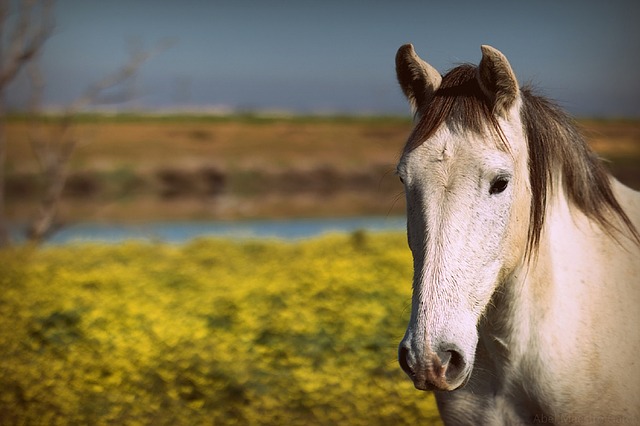
The chance to experience an actual working ranch with real life gaucho cowboys was too good for me to resist on my South American tour. The Panagea Estancia (ranch), although vast in square distance across the plains of northern Uruguay, is so off the beaten track it’s an hour’s off-road drive from the nearest town, Tacuarembó. This is itself a four-hour bus drive from Montevideo, Uruguay’s capital in the south. So, by the time you pull up at the sleepy Panagea, you are in the real heart of this beautiful country. The sounds of horses, sheep, cows, hens, dogs and birds instantly puts you in farm and ‘back to nature’ mode.
I stayed for a week at the ranch, which costs approximately $60USD per day. The accommodation consisted of comfortable shared rooms (usually three beds to a room), with no internet or electricity apart from two hours via a generator each evening, so this is a truly rustic experience. A cozy living and dining area is complete with an open log fire, rocking chairs, sheepskin rugs and hanging bull skulls.
Outside, an open charcoal fire, hammocks and a make-do badminton court that Juan (the owner and real gaucho cowboy) likes to play on with guests. But my favorite touch? Flags of the world hand-painted along the outside of the house, and a grand collection of gaucho cowboy hats hanging from the porch wall.
This isn’t a place to hang out and swing from the hammock all day. When you’re there, you have to work like a gaucho and help this family sustain their living in exchange for their hospitality, accommodation and hearty meals.
The key to this wonderful, unique farm experience is the charismatic local gaucho Juan Manuel Luque and his wonderful Swiss wife, Suzanna, who own and live on the ranch. They provide all farming expertise, accommodation, food and welcoming warmth. Juan is a hilarious guy, but does take his farm and the work very seriously, so this isn’t a place to hang out and swing from the hammock all day.
When you’re there, you have to work like a gaucho and help this family sustain their living in exchange for their hospitality, accommodation and hearty meals. With groups of around 10 people at a time, you are also expected to help Suzanna with food prep at lunch and dinner. Dinners are a fabulous way to get to know the family, their way of life and the local cuisine.
Wind in the hair and beautiful morning sunshine, the vast green landscape as far as the eye can see is breathtaking.
After initial lessons, you’re ‘matched’ with a horse according to your riding ability and confidence level. I got Kaiser, a beautifully natured beast. You’re taught how to saddle up (and down) gaucho style, with nothing but layers of sheep skin, leather and rope. Each morning we’d ride far and wide, negotiating the rough grounds of the plains as we went. Wind in the hair and beautiful morning sunshine, the vast green landscape as far as the eye can see is breathtaking.
Cattle herding was our main task: moving herds across miles of land to an area where the calves would eventually be penned and nose tagged (to stop them suckling and growing any bigger), ready for market. I had a specific job to do: keep the pen gate down with a rope and lead-weight pulley system, while nose clipping was done, and release the animals back to their parents as soon as it was complete. It was a loud, distressing and messy job, but rewarding once complete.
By the end of the week we were confidently able to gallop off solo to fetch escapee cattle and swiftly usher them back to the herd, strange whistles and all!
Lamb castration is also part of the ranch experience. This involves herding hundreds of the little fellas into large pens, where they’re picked up by all four hooves and placed on their backs on a block of wood. Juan, with a small machete in hand, castrates them effortlessly before they are placed back on their feet, bloody and disorientated. I found it emotional to watch. Happily, my role was to reunite them with their parent sheep, herding them into a neighboring pen.
What’s amazing is how quickly you become skilled at herding. By the end of the week we were confidently able to gallop off solo to fetch escapee cattle and swiftly usher them back to the herd, strange whistles and all! Horse riding true gaucho style is done without a saddle and only one hand to control the horse’s reigns, so mastering this felt like quite an achievement. Getting an approving thumbs up from Juan always warranted a self-high-five!
The long mornings working on the ranch were rewarded with hearty lunches of fresh cuts of beef, lamb and pork, all cooked on the outdoor charcoal fire by Juan. The meat was accompanied by colorful vegetable and bean side salads made up by Suzanna.
We’d sit around the fire reflecting on the morning’s work, swing in the hammocks and enjoy hard cheese along with a tipple of red wine (the South American way!) After two to three hours we’d be refueled and rested enough for the afternoon shift out on the ranch.
Sign up for a FREE online writing workshop here.
Dinner is a similar affair to lunch, but is usually held indoors around a large wooden table, around the time of sunset. Alcoholic drinks can be paid extra for, and you do so by putting cash at the end of your stay directly into Juan and Suzanna’s honesty box.
I left Panagea ranch proud and exhausted, enriched with new skills and feeling a renewed connection to nature. Most importantly for me, I had experience the heart of Uruguay. Understanding how this family live, earn a living and even eat; welcoming complete strangers into their home with open arms taught me about the innate warmth, acceptance and trust of the Uruguayan people.
Have you traveled to Uruguay? How was your trip? Email us at [email protected] for information about sharing your experience and advice with the Pink Pangea community. We can’t wait to hear from you.
Photo credit for Ranch Life in Uruguay by Jodi Marie.



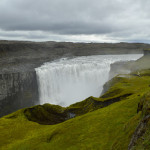
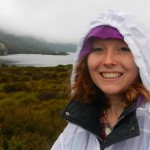
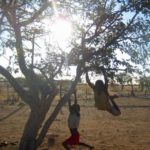
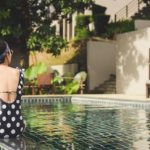


Very good article, we wood like to have the contact of Suzanne Luque, since she is Swiss and we are too in Salto. We could connect and keep the Swiss connection going.
Christine de Bonstetten
[email protected]
www.casawirth.com (look towards the end where we bring guests to the Estancia) 20 min from Salto.